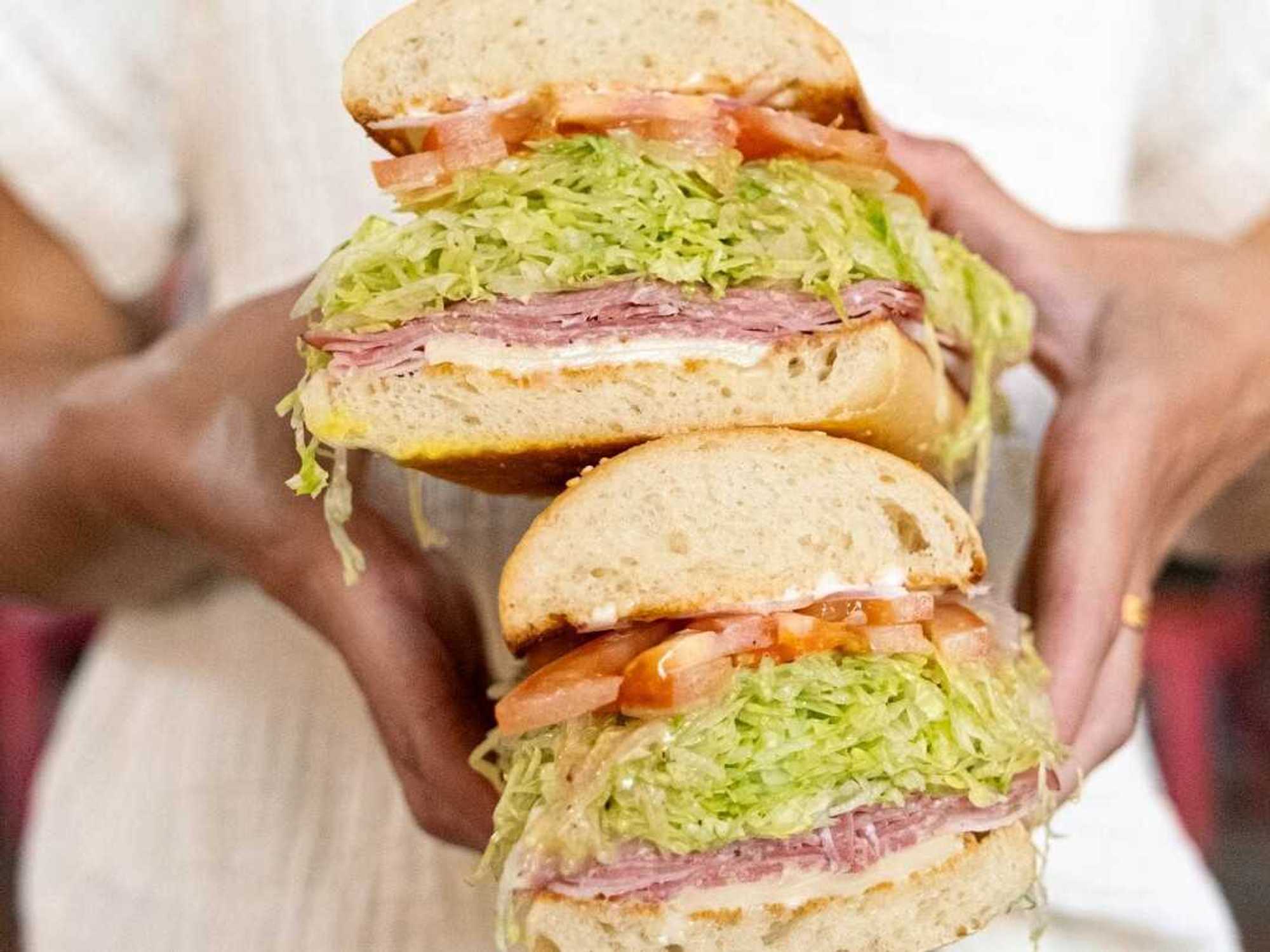School of Life
Consideration Deficit Disorder: How to determine if you have it, how to treat itif you do

 Photo by Christina Pesoli
Photo by Christina Pesoli Photo by Christina Pesoli
Photo by Christina Pesoli Photo by Christina Pesoli
Photo by Christina Pesoli
When I think of my boyfriend Clint, my thoughts turn to butter. Wait—sorry. It’s the other way around.
When I think of butter, my thoughts turn to Clint. That’s because when we had been going out only a week or two, Clint bought me a butter dish. A few days earlier he heard me grumbling about the butter sitting on a saucer in the fridge since I didn’t have a proper butter dish. He made a mental note of that, and the next time he was at Target, he did something about it.
Thoughtful. But not that big of a deal, right? After all, our relationship was brand new, and everyone is on his very best behavior at first.
Fast forward three years. Hannah, Clint and I were in Dallas for the weekend. We stumbled into a little gift shop that had a display rack covered with irreverent, sarcastic refrigerator magnets. And even though I have so many of these magnets already that they can collectively lift my refrigerator off the floor, they still have this pull over me.
Hannah found one that said, “Mommy knows best. That’s why she left Daddy,” and Clint found one that said, “The first forty years of parenting are always the hardest.” The store had a two-for-$5 deal going, so I decided to get them both.
Clint and I went to check out, but Hannah kept looking.
“Hey, Mom, this one sounds like you: ‘A couple more espressos and I can fly!’”
That was really tempting—both the double espresso and the magnet. But I decided to pass, figuring I had to draw a line somewhere. Once we were back in Austin, as I tried to find space on the fridge for my new magnets, I said mentioned that I really regretted passing on that last magnet.
A couple of weeks later Clint was unpacking his bag after a business trip to Dallas. “Here—I got you something,” he said as he handed me that little round magnet. Between meetings, he had made time to go back to that store, scour the magnet rack until he found it (which he did sitting cross legged on the floor in business attire, because he’s 6’4”, the rack is low to the ground and has hundreds of magnets on it).
This is exactly why Clint is really good at relationships. It’s not that he’s perfect—he’s not. It’s that he is considerate. And being considerate goes a long way toward assuring that a relationship will be successful; not only in terms of how many years it lasts, but more importantly, how those years feel while you’re living through them.
Being considerate comes naturally for some people. But what about other people (like me) that aren’t wired quite so selflessly? Are we destined to a lifetime of being bad partners to good people, or worse yet, pairing up with other selfish people and having everyone-for-himself relationships? Not necessarily.
Whether you can overcome a consideration deficit disorder (“CDD”) depends on the following two things: 1. Whether you have enough self-awareness to properly diagnose your disorder; and 2. How willing you are to take compensating actions to make up for your condition.
Sound like a lot of work? Don’t be intimidated. We can do this together. If you’ve read this far, I think it’s safe to say we’ve established that we both have at least a little self-awareness. Let’s push ahead and assess how considerate we are, then figure out what compensating measures to take to address any deficit. The following decoder will help us break it down:
When it comes to how considerate someone is, most people fall into one of four categories:
1. The Big Spender.
When it comes to consideration, everybody loves the Big Spender. He appears to have unlimited reserves of consideration for others, and he’s always willing to spend it. Clint is definitely in this category.
If you are a Big Spender you should know that while being considerate is your natural state, you can spread yourself too thin and the one that pays the price is usually you. Don’t be afraid to let people know when you need some help, even though asking for and worse yet, accepting help pushes you right out of your comfort zone.
If you are in a relationship with a Big Spender, don’t take for granted all the considerate things that your significant other does for you all the time. Remember to give back some, too, even though it doesn’t come as naturally to you, and he never asks for anything.
2. The Rationer.
The Rationer has a moderate supply of consideration for others, but there are definitely limits. The Rationer does her best to mete out roughly equal portions of consideration for others so that everyone gets a fair amount.
If you are a Rationer, your biggest problem is that sometimes you forget to keep an eye on your consideration tank and it runs dry before you’ve gotten to everyone. If you have kids, what often happens is you manage to get them covered, but when it comes to your significant other you’re on empty and he’s left high and dry. I am a Rationer, so I have to make a conscious effort to make sure Clint gets treated right. And since he’s a Big Spender, he is the last person who will remind me to save a little consideration for him.
3. The Opportunist.
The Opportunist is considerate, but this quality is often eclipsed by his drive to find double coupon opportunities, and that makes him come across as being cheap. For example, the Opportunist may notice that you need a new oven mitt. But instead of just buying you one and giving it to you, he waits to give it to you until Christmas. So, what would have been a really considerate gesture on any day other than Christmas (or Valentine’s Day, your birthday or anniversary), turns into a story that is told for years to illustrate how inconsiderate he is, which really isn’t the case at all.
If you are an Opportunist, your challenge is to recognize that your drive to be thrifty is costing you way more than it’s saving you. Give the oven mitt just to give the oven mitt. Because when it comes to things like this, there are no double coupons days, there are only triple penalty points.
4. The Hoarder.
The Hoarder only considers his own wants and never anybody else’s. If there’s one stick of gum left and two people, he pops the gum in his mouth without a moment’s hesitation. Once in a long while, the Hoarder will appear to do something nice for someone else—and when he does, it’s usually something big and splashy. But if you look closely at the gesture, it becomes clear that, like everything else, it’s really mainly for him. For example, a Hoarder might surprise his wife with a trip to Ireland. At first blush, people might be impressed with the Hoarder’s generosity. But what they don’t know is the Hoarder is trying to buy his way out of the dog house for losing five grand at the craps table in Vegas when he was supposed to be at that trade show. And to top it off, the trip to Ireland is actually a golf package that has always been his dream vacation. His wife, as it turns out, is not a golfer and has always wanted to go to Argentina.
If you are a Hoarder, you do not have the self-awareness to recognize that you are chronically inconsiderate. And even if you did, you would not be willing to take compensating actions to address your shortcomings.
If you are in a relationship with a Hoarder, I hope for your sake that you are also a Hoarder because that’s really the only hope for you two. If you’re not a Hoarder, you should cut your losses now and move on.
***
Doing something that comes naturally on a regular basis is a lot easier than training yourself to do something that does not come naturally. I was thinking about that the other day when I was at Clint’s house borrowing a book I needed for a story I was working on. A little later it occurred to me that if I were to pick up Clint’s mail for him while I was there, that would save him a stop on his way to my house after work. Unfortunately, that idea came to me as I was pulling into my garage after I drove home.
But before I had the chance to beat myself up over the missed opportunity to work on my CDD, I was distracted by a UPS package on my front doorstep. I opened it up to find a set of Girls Fashion Pens that Clint had secretly ordered for me after hearing me talk about how awesome I thought they were. See what I mean? His little acts of consideration say more to me about who he is and how he feels about me than any big, expensive gift ever could.
And while I clearly have a thing or two to learn about being considerate, I am lucky to be in the position to learn from the master. Come to think of it, I guess I had it right the first time. When I think of Clint, my thoughts turn to butter… at least until I start thinking about myself again.

 Our wildcard category this year will crown Best Sandwich.
Our wildcard category this year will crown Best Sandwich.